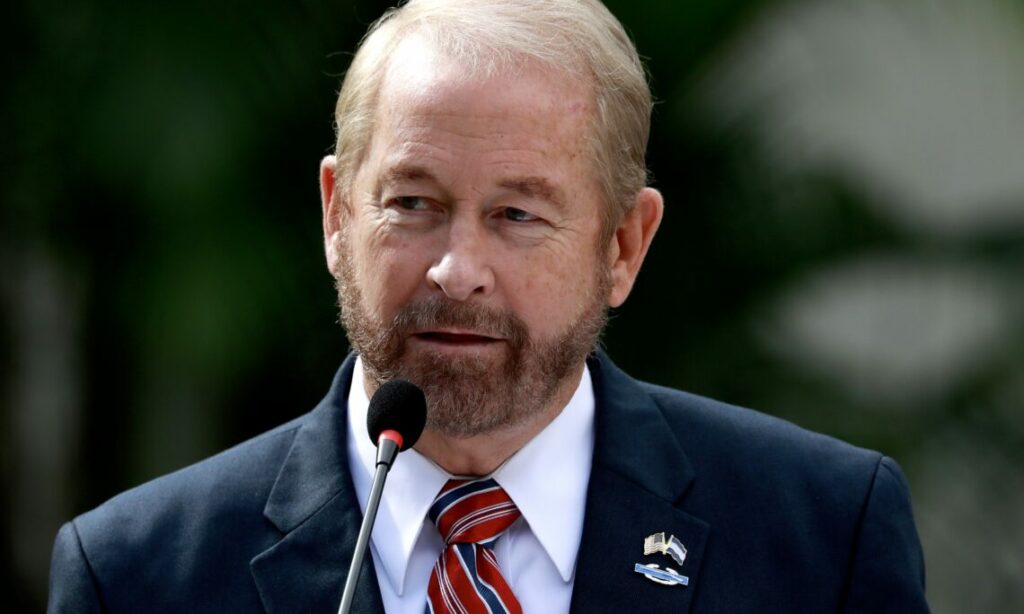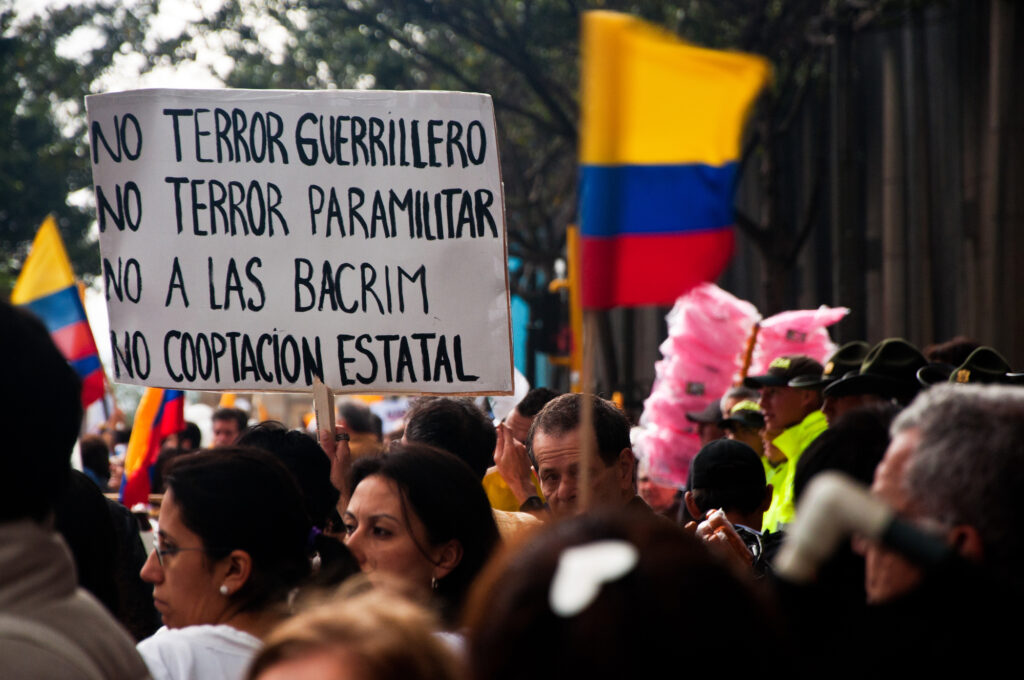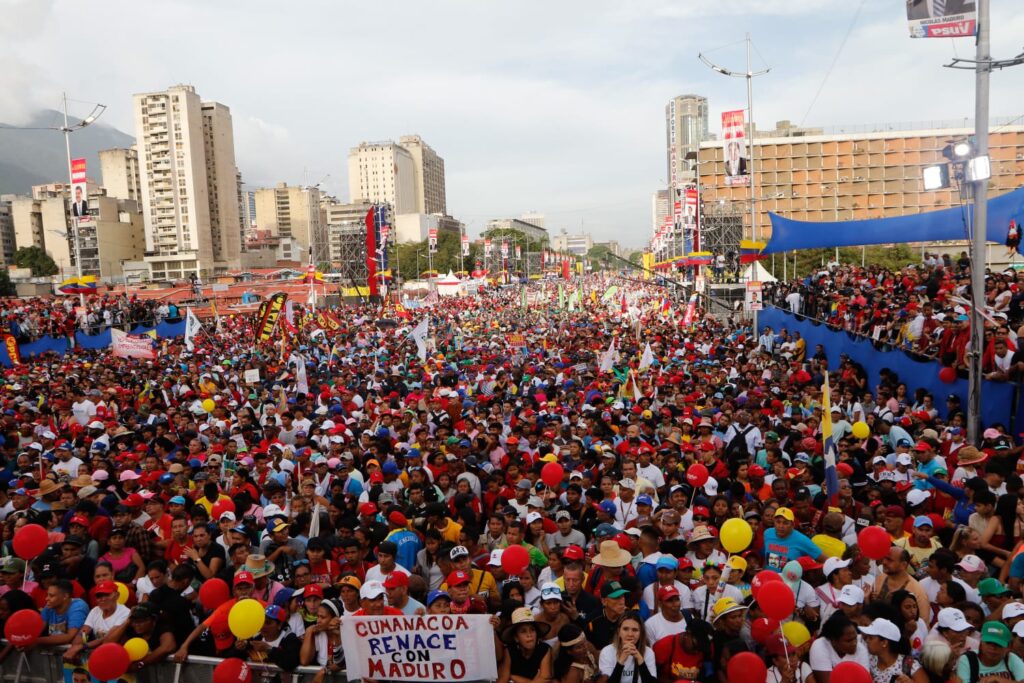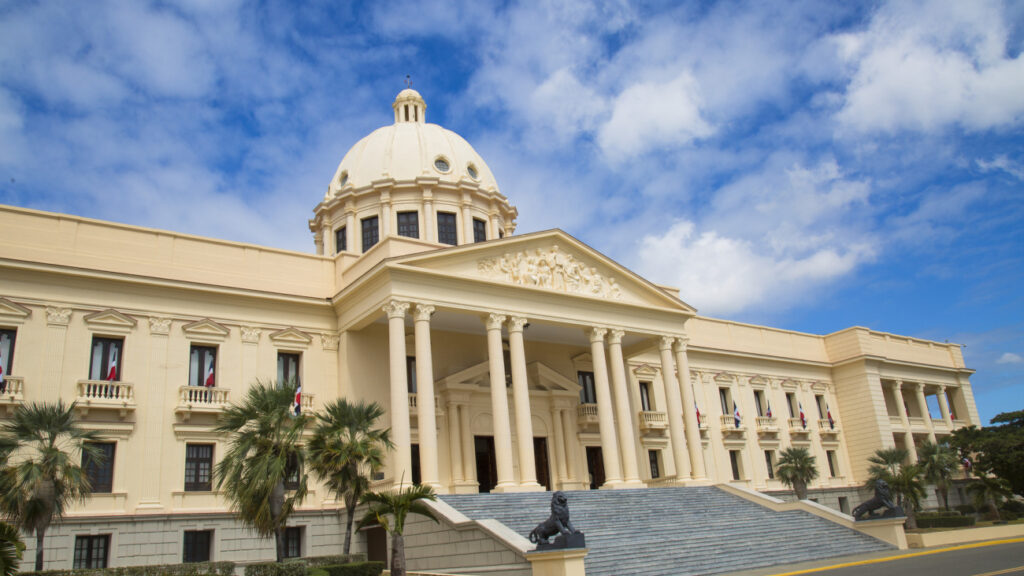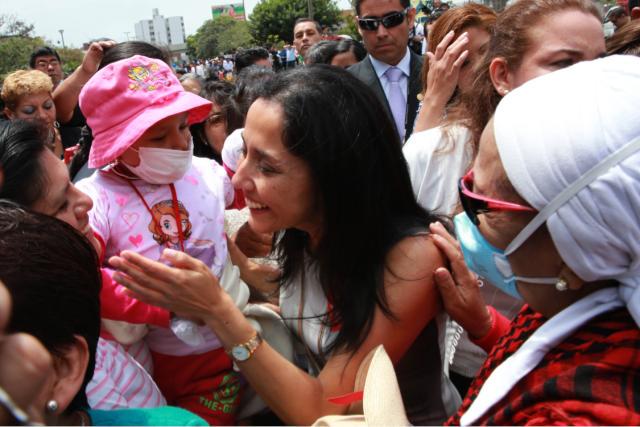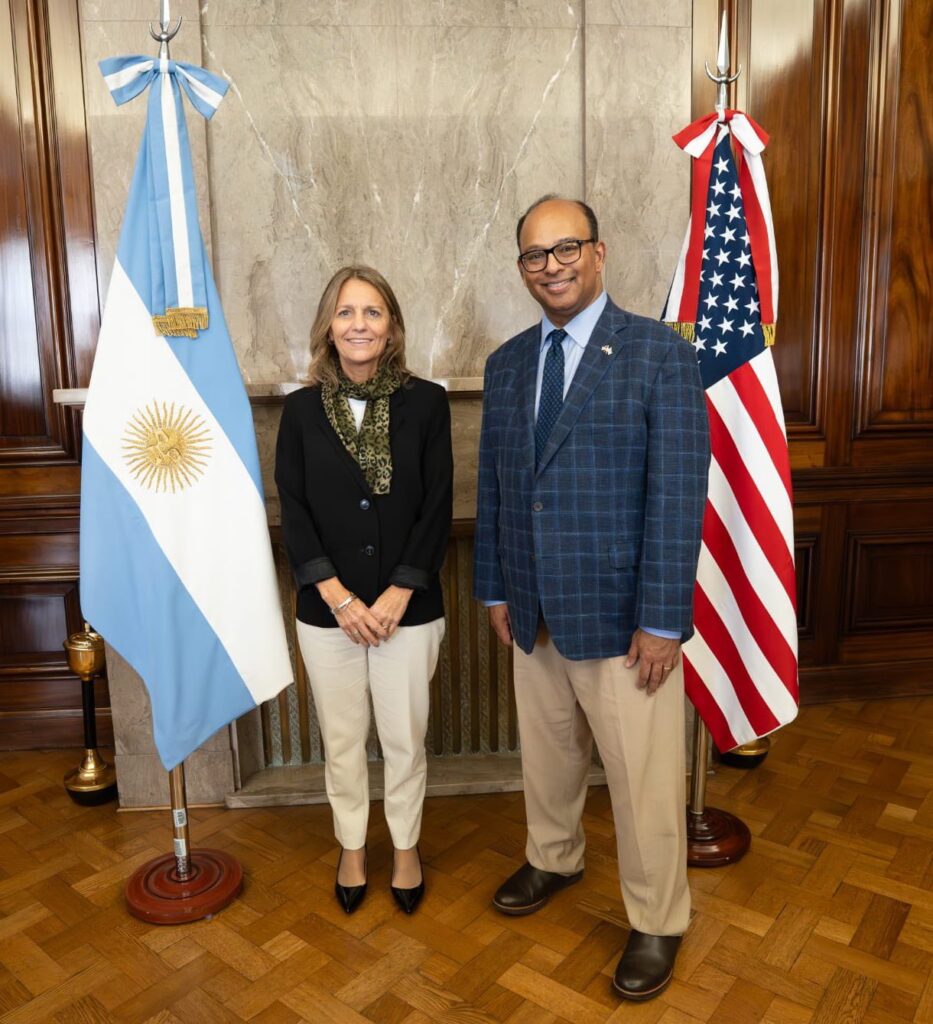A ProPublica investigation has revealed that Ronald Douglas Johnson, the U.S. ambassador to El Salvador during Donald Trump’s first administration, favored the government of Nayib Bukele by softening pressure to extradite MS-13 members to the United States and by promoting the Salvadoran president’s image in Washington, thereby consolidating the relationship between the two leaders.
The U.S. Senate confirmed Johnson as ambassador to El Salvador on June 27, 2019, replacing then-Ambassador Jean Manes. According to the investigation, published on September 30, with Johnson’s arrival, the U.S. embassy became a promoter of Bukele’s image among Republicans and the Trump administration.
Citing a report from the State Department’s Inspector General, the news outlet states that in August 2020, Bukele asked Johnson for an “extraordinary” favor: the dismissal of a contractor, a U.S. citizen who in 2019 had helped an FBI-led task force uncover an alliance between the Bukele government and the MS-13 gang.
The contractor fired by Johnson had gathered evidence that Salvadoran state officials met with MS-13 leaders—a group designated as a terrorist organization by the U.S. State Department and pursued for kidnappings, rapes, and murders in the United States. In these meetings, which took place in maximum-security prisons, Bukele’s officials allegedly agreed to provide gang members with money and protection in exchange for a reduction in homicide rates.
Bukele’s request to fire the U.S. embassy contractor came after Salvadoran authorities intercepted a conversation between the contractor and a Salvadoran journalist, in which they discussed corruption among high-level officials close to Bukele.
President Bukele gave a recording of these conversations to Johnson, and the diplomat immediately ordered an investigation that ended with the contractor’s dismissal. According to the ProPublica report, the investigations the contractor was assisting posed a risk to the Bukele administration, which is why Bukele sought his removal from El Salvador. Johnson and Bukele had cultivated a close relationship from that point on.
A pattern of behavior
The investigation revealed that the U.S. official performed other favors for Bukele, in what ProPublica described as “a pattern” in which Johnson protected Bukele from U.S. authorities and the justice system.
While Johnson was in his post, he did little to secure the extradition to the United States of Armando Melgar Díaz, alias “Blue,” an MS-13 leader wanted by U.S. courts for kidnapping, drug trafficking, and authorizing the murders of U.S. citizens. Blue is also a potential witness to the negotiations between the Bukele government and the gang and was a primary target of the FBI-led task force.
Even after leaving his spot, Johnson continued to support Bukele. The investigation, based on interviews and public reports, noted that Johnson helped position Bukele as Donald Trump’s favorite Latin American leader.
The friendship between Johnson and Bukele caused concern among senior State Department officials in the Joe Biden administration. This led to a review of the contractor’s dismissal when Johnson’s successor, Jean Manes, arrived in El Salvador as Chargé d’affaires.
During the review of the contractor’s firing, based on an Inspector General’s report, Manes concluded that “Bukele requested Johnson remove [the contractor] and that was what happened.”
“Manes explained that [the contractor] was working on anti-corruption cases against individuals close to El Salvadoran President Nayib Bukele and Manes believed removing [him] was a way to ensure the investigations stopped,” ProPublica wrote stating the report.
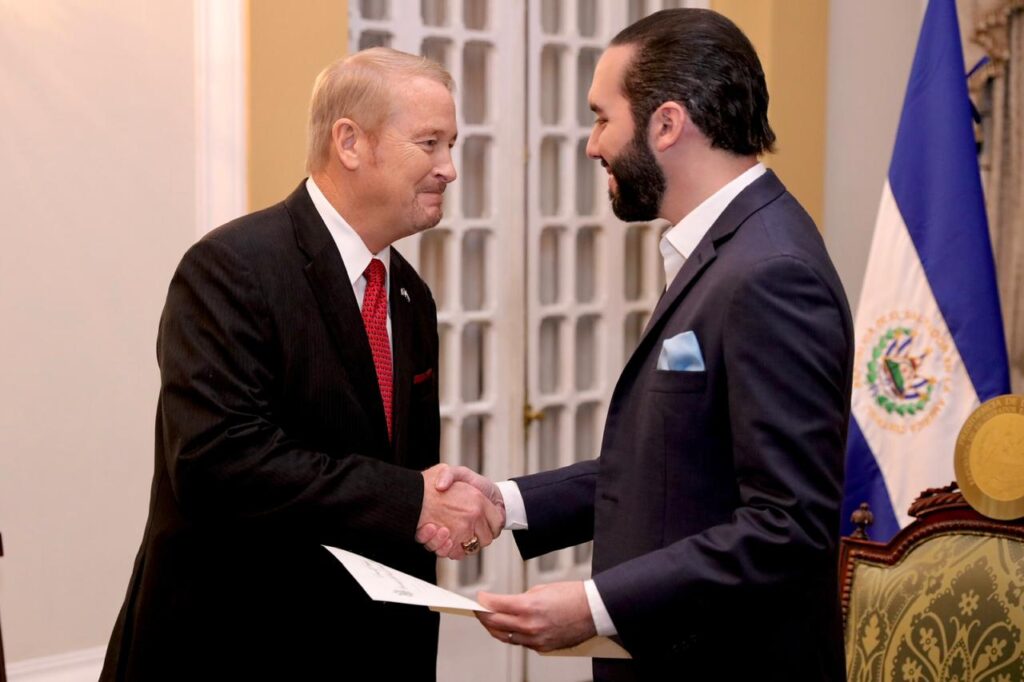
The outlet also revealed that, following Manes’s assessment of the case, the CIA station chief—a friend of Ronald Johnson who maintained close ties with Bukele—was removed from his post. That relationship had raised concerns among Joe Biden administration officials, who suspected that the ties between Johnson, the station chief, and Bukele were hindering a shift in U.S. foreign policy toward El Salvador, particularly regarding corruption and democracy, according to the Inspector General’s reports.
“Manes would go see Bukele to convey U.S. concerns about some of his policies. Then the station chief would go see him and say the opposite,” said Juan Sebastián González, a former senior director for Western Hemisphere Affairs at the National Security Council, who received frequent reports about the embassy according to ProPublica.
With Biden’s arrival at the White House, former Ambassador Manes returned to El Salvador on June 1, 2021, as the Chargé d’Affaires of the U.S. Embassy. The diplomat was appointed to the position by then-Secretary of State Antony Blinken.
Manes arrived in El Salvador amid a crisis in bilateral relations, after the Biden administration repeatedly called for the restoration of constitutional order. This followed the Legislative Assembly, dominated by Bukele’s Nuevas Ideas party, dismissing Attorney General Raúl Melara and the magistrates of the Constitutional Chamber of the Supreme Court on May 1, 2021, to install their own judges and attorney general.
Melara’s office had been investigating negotiations between Bukele’s government officials and gangs to secure electoral support and reduce the homicide rate in El Salvador.
Investigations by the digital newspaper El Faro revealed that the initial contacts between Bukele’s circle and the gangs date back to 2014, when he was a mayoral candidate for the Salvadoran capital under the banner of the Farabundo Martí National Liberation Front (FMLN), the party he belonged to at the time. However, it was in 2019, when Bukele assumed the presidency, that the most compelling evidence of his pact with the gangs emerged.
Although Manes attempted to engage with Bukele in both public and private meetings, a pause in diplomatic relations between the two countries was announced on November 23, 2021.
Despite the tensions in the El Salvador-U.S. relationship, Johnson posted a photograph with Bukele and his wife, Gabriela de Bukele, smiling in front of a Christmas tree—an act interpreted as a message to the Biden administration. Critics of the former ambassador pointed out that his stance made him seem more like a spokesperson for the Salvadoran government than a representative of Washington.
His defenders, who highlighted his background as a military veteran and former CIA agent, argued that Johnson’s strategy sought to maintain a close relationship with Bukele and, in that way, advance the objectives of U.S. policy: reducing immigration.
The ambassador also instructed diplomatic staff that the Trump administration’s priority was cooperation on reducing immigration, despite being aware that the Vulcan Task Force had compiled evidence of pacts with gangs and corruption cases.
Featured image: Ronald Douglas Johnson.
Image credit: US Embassy in El Salvador.


